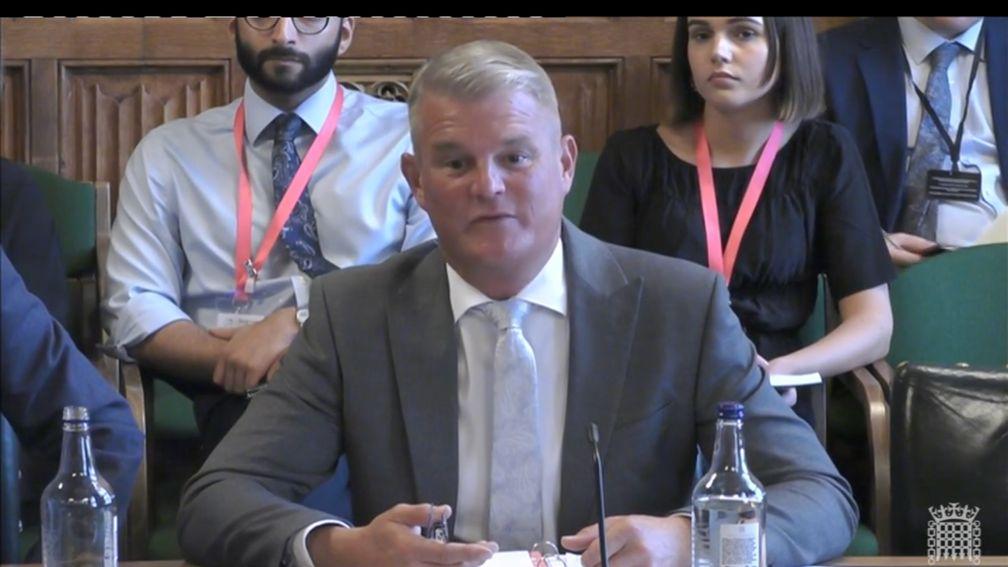The BHA has hit back at the Gambling Commission’s claims that the threat of the black market on betting has been overstated, outlining the “significant financial implications” it could have on the racing industry and the potential consumer protection and sporting integrity concerns it may cause.
The authority said its calculations showed that for every £10 million of British racing revenue from betting activity that moves to the black market, the sport loses £1 million in levy funding and around £1.5 million in media rights.
On Wednesday, the Horseracing Bettors Forum presented survey data to sports minister Stuart Andrew which stated that 73 per cent of the 296 respondents would consider using the unregulated black market if bookmakers requested additional private information to allow them to continue betting. The punters’ body also urged the minister to roll back the affordability checks already being imposed on gamblers until they were truly frictionless, as he had vowed.
The Racing Post’s own ‘Big Punting Survey’, conducted this year, found that 3.6 per cent of respondents had already used a black market operator in the last 12 months, while a PwC report commissioned by the Betting and Gaming Council claimed the amount staked by UK online gamblers on the unregulated market in 2020 had doubled to £2.8 billion in the previous one to two years.
However, on Tuesday Gambling Commission chief executive Andrew Rhodes said the size of the black market in Britain was “very small, but estimates do vary” when answering questions at a Culture, Media and Sport select committee meeting as part of the examination of proposed new betting regulation.
A BHA spokesperson said: “The Gambling Commission continues to underestimate the threat of the black market. DCMS (Department for Culture, Media and Sport) admitted in the white paper that there is a growing black market and it is becoming increasingly easy for bettors to find.
“We are concerned about the consumer protection implications for racing bettors who move to the black market, in addition to the significant financial implications for racing of a mass move to unregulated betting.
“Our calculations show that for every £10 million of British racing gross win that moves to the black market, racing loses £1 million in levy funding and circa £1.5 million in media rights.
“There are also concerns around more racing bettors being in the unregulated market from a sports integrity point of view – it will make betting patterns harder to track.”
Sports minister Stuart Andrew told the select committee meeting that it is his intention for affordability checks not to cause any harm to the horseracing industry, but the BHA believes that is simply not possible.

Stuart Andrew: sports minister has said he does not wish to cause any harm to the racing industry
A BHA spokesperson said: “While we very much appreciate the sentiment, it’s not plausible to make such significant changes to gambling legislation without causing harm to racing’s finances given the unique relationship between British racing and betting.
“We have been consistently outlining the risk of unintended consequences to racing since the start of the review. We appreciated the inclusion of an impact assessment on racing in the white paper, but feel the likely impact calculated is on the low side and we will be providing further modelling to DCMS in due course.”
The BHA will not back a pilot scheme of official affordability checks until greater detail is provided by government on how it will work, including assurances around the frictionless nature of such measures.
“It is our view that if a check is being conducted on a racing bettor’s affordability that the process should be as frictionless as possible,” said the BHA spokesperson.
“We understand, however, that there needs to be significant development of the technology to make a frictionless check possible and therefore we were pleased to hear minister Andrew provide an assurance at British racing’s parliamentary reception that these checks, which will be conducted at relatively low levels of spend, will not come in until there is confidence that they will be genuinely frictionless for the vast majority.
“In principle a pilot period would seem an effective way to assess changes to gambling legislation and the impacts on racing. We would, however, reserve support until government clarifies exactly what would be included within that pilot.”
To complete the Gambling Commission’s consultation on affordability checks, visit racingpost.com/consultation and follow the instructions.
The Racing Post also wants to hear from you: What has been your experience of affordability checks since the white paper was published at the end of April, and what do you think of the government’s proposals? Have affordability checks affected your betting behaviour?
It’s a chance for your voice to be heard. Email the Racing Post at [email protected] with the subject ‘Affordability checks’ to share your experiences, your thoughts about the government’s proposals, and your contact details.
Read more on the Gambling Review here:
These men know nothing about betting – but they’re on a mission to ruin it for us anyway
‘Not what’s happening in the real world’ – scepticism over minister’s claims on affordability checks
You have told them to ‘butt out’ – now the government and Gambling Commission must respond

Sign up to receive On The Nose, our essential daily newsletter, from the Racing Post. Your unmissable morning feed, direct to your email inbox every morning.